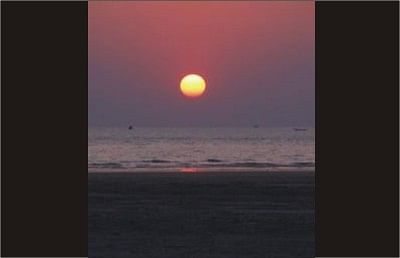Manning our maritime borders

Who will control the waves?
THE proposal made by the visiting US Assistant Secretary of State for South and Central Asia, Richard A Boucher, to assist Bangladesh in protecting its mineral-rich sea areas in the Bay of Bengal, has made many suspicious of any hidden notion behind this apparently innocuous offer.
The US envoy, however, ruled out the notion of setting up any US military base in Bangladesh, adding that the modalities of the proposed assistance in marine patrol depends on Bangladesh's requirement within the US ability.
The issue of assistance in marine patrol came up for discussion for the first time against the backdrop of a row over oil gas exploration by Myanmar in Bangladesh's territorial water in November when Myanmar naval warships escorted three South Korean survey vessels into Bangladesh territorial water to explore gas and oil in the Bay of Bengal. Diplomatic efforts involving China and South Korea apparently put the row to an end.
Similar tension also built up with India in December, when an Indian survey vessel escorted by two naval ships entered Bangladesh's waters to carry out hydro-carbon exploration and refused to retreat into their territory despite Dhaka's protests. Diplomatic parleys by Dhaka led to their retreat into their own territory at that time.
The Bay of Bengal has come recently into the focus of regional attention for its possibility of having huge deposit of mineral resources including oil and gas. But the issue of delimiting the country's maritime boundary in accordance with the provisions of the UN convention on the law of the sea (Unclos) 1982 has been hanging fire for a long time.
One will surely describe this as gross negligence of the successive governments for taking long 19 years to ratify Unclos in 2001, an important UN convention for protecting countries from unwarranted intrusion in the seas, and 36 years to sit down for discussing the maritime issues with two close neighbours, India and Myanmar. Moreover, we have not yet started updating the country's marine laws in consistent with Unclos.
Unclos contains provisions for determining a nation's continental shelf, contiguous zone, exclusive economic zone, and sea territory. The most important part of Unclos concerns the activities for exploration and economic exploitation of the resources of the sea-bed and its subsoil. It also provides protection of marine environment and opportunities for research intending to develop marine technology.
Apparently, India and Myanmar had undertaken exploratory activities inside Bangladesh's maritime zones, taking advantage of unresolved issue of delimiting maritime boundaries in the Bay of Bengal. Both India and Myanmar are under UN obligation to settle the maritime border disputes with Bangladesh in a peaceful manner in accordance with the provisions of Unclos. But Bangladesh has failed in delimiting its maritime boundaries in the line with Unclos 1982.
As the country failed to ratify Unclos before May 13, 1999, it will have to wait for 10 years from the date of its ratification to file claims as per UN convention. So, situation may remain volatile till 2011, when the maritime boundary will finally be demarcated in accordance with Unclos.
It is an encouraging development that Prime Minister Sheikh Hasina has raised the issue of maritime border delimitation at her first meeting with officials of the energy ministry and the Foreign Minister Dipu Moni has informed the nation that the government is all set to file claims to the UN on maritime boundary.
The recent incursion of Myanmar's and Indian naval warships, escorting their oil and gas exploration vessels into Bangladesh maritime zones in the Bay of Bengal, was a clear indication of serious consequences of leaving unresolved a long-standing maritime border dispute.
Bangladesh cannot afford to lose its legitimate share of oil and gas in the Bay of Bengal. But US offer to assist Bangladesh in protecting its maritime border augurs ill to many because of its dominating role after setting a naval base in Diego Garcia on the Indian Ocean, which may be extended to the Bay of Bengal for their geo-political strategic interest.
Bangladesh can accept the US offer, if their support is featured for training and supplying of required equipments and vessels for exploring oil and gas in the Bay of Bengal. But physical presence of US navy in the Bay of Bengal for protecting our mineral-rich zone will be a threat to our sovereignty.
Therefore, all three nations, Bangladesh, India, and Myanmar, locked in long standing maritime border dispute, should strive to find a suitable solution through a pragmatic dialogue, leaving their brinkmanship attitude for bigger interest of all. Dominance of US navy in the Bay of Bengal will certainly be harmful for all the nations in the region.
It is pertinent to mention here that a good number of Asian countries including China, Japan, Thailand, and Vietnam have successfully resolved similar maritime border disputes through negotiation with their counterparts.

 For all latest news, follow The Daily Star's Google News channel.
For all latest news, follow The Daily Star's Google News channel. 



Comments